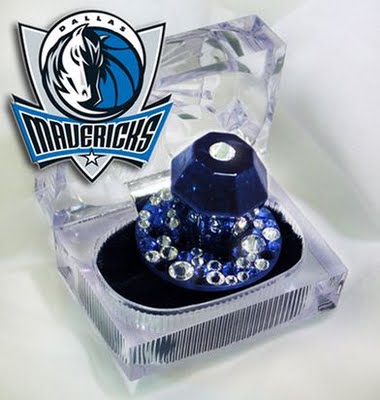Any man who'd buy a professional basketball team for his wife is aight with me. 
N.Y. Times: Mark Cuban is the face of the Mavericks, but Don Carter is the soul
Thirty-one years ago, Don Carter knew about a lot of things. He was a "bidnessman" in the lexicon of Texas entrepreneurs, one who got rich through home furnishings, wore a Stetson like a crown and piloted his own plane to and from his own holdings. What did Carter know about basketball or the
NBA?
''Not a thing," he said recently. "My wife, Linda Jo, is the basketball guru, and I was stupid enough to promise her a basketball team and had to keep that promise."
It cost him $12 million for the expansion team, and his hardcourt education was often a bruising one. But Carter, 77, looked pretty smart Thursday when he and Linda Jo rode in the lead convertible in downtown Dallas as tens of thousands of people celebrated the Dallas Mavericks' first NBA championship.
Mark Cuban may be the loud and flamboyant face of the Mavericks, but it was Carter who brought the team to what had been a basketball backwater and who, from his courtside seat all these years, has been its soul.
No one knows it better than Cuban, who, as Game 6 was winding down Sunday in Miami , waved Carter, now a minority partner, down to the floor as time was running out on the Heat. It was Carter, not Cuban, who accepted the trophy from commissioner David Stern.
''I was touched, really touched," Carter said. "I knew this day was going to come, but I just wondered if I was going to be in a wheelchair for it."
It was the end of an odyssey that began on a couple of beanbag chairs in the back of a pickup truck on an airfield in Utah . It was 1980, and Carter had flown himself there to talk Dick Motta into becoming the coach of the Mavericks.
Motta, who coached the Washington Bullets to the NBA title in 1978, had already turned down the job. But Carter decided they needed to meet face to face.
''He and his wife picked me up at this airfield, and we both climbed into the bed and we bounced along and had a nice talk," Carter said. "I'm the kind of guy who likes to go in the kitchen door and see what folks have stuck to their refrigerator, to see what's important to them. I knew immediately that Dick was going to be the guy to lay our foundation. He was a teacher."
The Mavericks were 15-67 in their inaugural season. Three seasons later, Motta led Dallas to the playoffs. Before the 1987-88 season, after four straight playoff appearances, Motta suddenly quit.
John MacLeod replaced him, and the Mavericks lost the Western Conference finals to the Los Angeles Lakers in seven games in his first season.
''He got tired of us, but that was his team in the conference finals," Carter said of Motta. "Coach MacLeod didn't change anything."
The Mavericks soon fell apart. Roy Tarpley, who made the all-rookie team in 1987, wrestled with addiction and was expelled from the league for violating its drug policies in 1991.
''He was a nice young man with all the talent in the world," Carter said. "But next to one hand he had $25 million and near the other he had a six-pack of beer. He chose the six-pack, figuring the money would still be there."
In 1994, Dallas drafted Jason Kidd, who was supposed to resuscitate the franchise along with Jim Jackson and Jamal Mashburn, a group known as the Three J's.
''You can't always make people work together," Carter said. "We had some heartbreaks."
Rolando Blackman, who played on six playoff teams in Dallas and is now the organization's director of basketball development, said Carter was as patient and nurturing through the lean years as he was in the successful ones.
He always came to the locker room, removing his hat for some polite conversation with the players.
''He was like a caring father," Blackman said. "Coming into the NBA as young kids, what he told us, told the fans, told everyone, that this was going to be a building piece. That all these guys would come together and build toward the future, and we did that."
By 1996, however, Carter said he was tired of fighting with city officials about building a new arena and decided it was time to trim some of his business interests, which had grown to include automobile dealerships, hotels, cattle ranches and rodeo arenas.
Among his streamlining was the sale of majority interest in the Mavericks for $125 million to an investment group led by H. Ross Perot Jr. Four years later, Perot sold the majority of the team to Cuban for $285 million.
The Mavericks are valued at $438 million, according to Forbes magazine, making them the sixth most valuable team in the league behind the Knicks , the Lakers, the Chicago Bulls , the Boston Celtics and the Houston Rockets.
''Ross got the arena built," Carter said of American Airlines Center, "and Mark wanted to build a first-rate basketball team. When I first met him, I went home to Linda Jo and told her I had finally found someone who loved the round ball as much as she did. He's done all this."
But as Cuban and Blackman and the throngs lining the parade route attested, it was Carter who put the championship dreams in motion. There he was among Dirk Nowitzki and an older, wiser Kidd.
''I probably feel the best for him," Carter said of Kidd. "He's no spring chicken, and this may have been the last shot for him to win a title."
Carter is more a grandfather than a "bidnessman" these days, and he has been grounded as a pilot temporarily because of some heart trouble.
But he and his wife are hardly standing still — they have a 41-foot power boat which they navigated through the Intracoastal Waterway along the Atlantic and Gulf Coasts.
''We've gone around it now one and a half times," Carter said. "When you're going seven miles per hour, you have an awful lot of time to think. I've got nothing but good thoughts from here on in."
 New topic
New topic Printable
Printable Report post to moderator
Report post to moderator

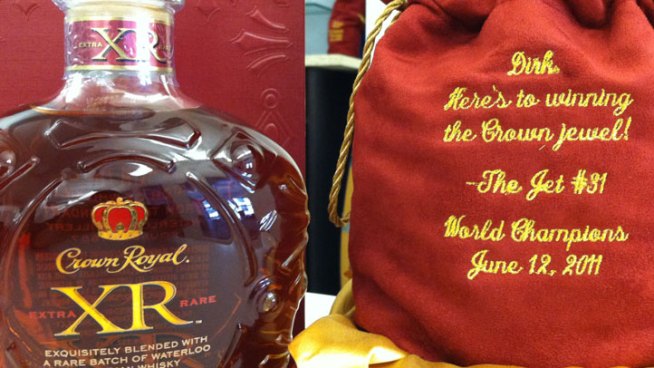

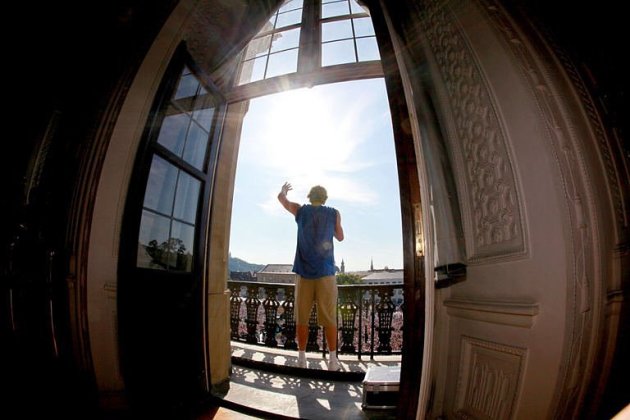
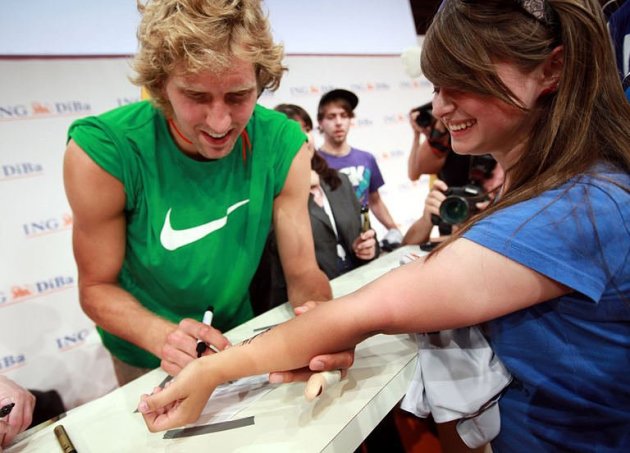
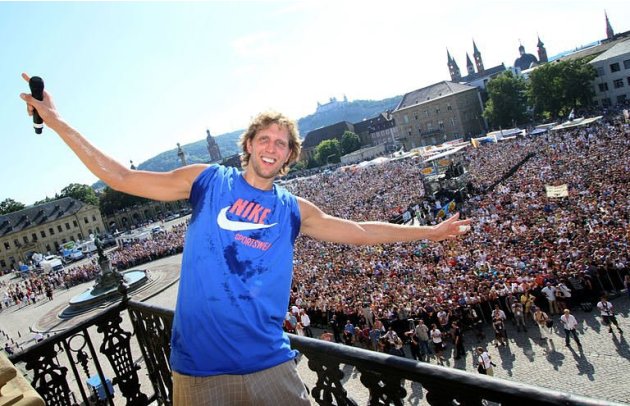
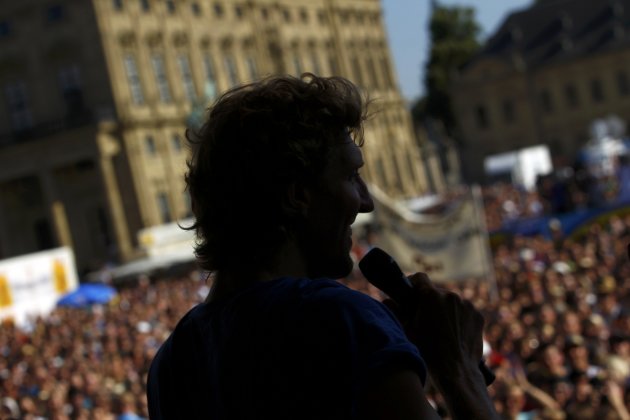




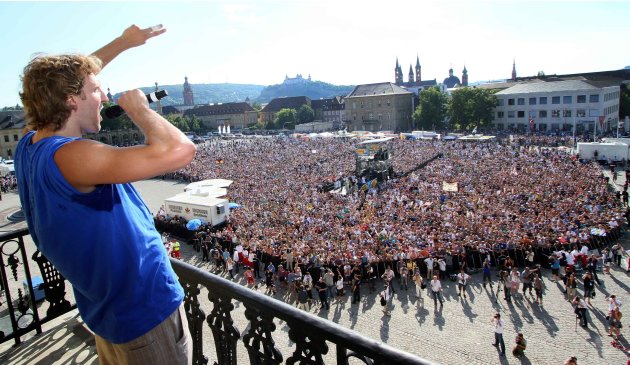
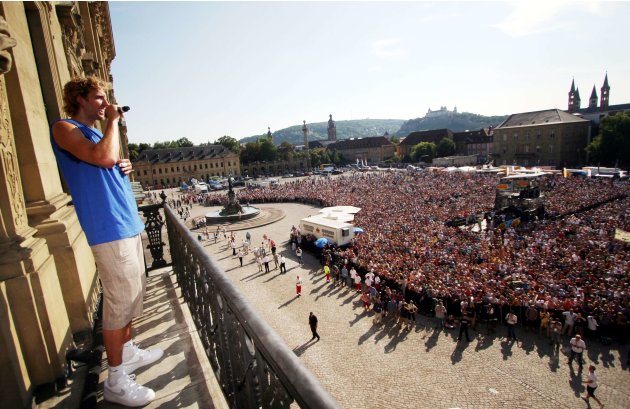
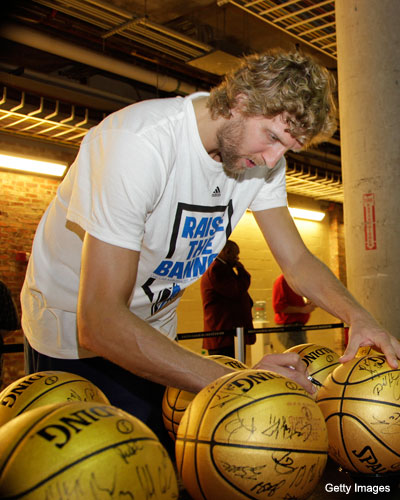 Racket jokes aside, you have to wonder if Ali and his family are in the habit of sending these sorts of gifts to either every NBA Finals MVP, every obvious franchise player behind the best teams of the NBA season, or even the top players on every championship team that rolls down the baseball/football/basketball pike a few times a year.
Racket jokes aside, you have to wonder if Ali and his family are in the habit of sending these sorts of gifts to either every NBA Finals MVP, every obvious franchise player behind the best teams of the NBA season, or even the top players on every championship team that rolls down the baseball/football/basketball pike a few times a year.